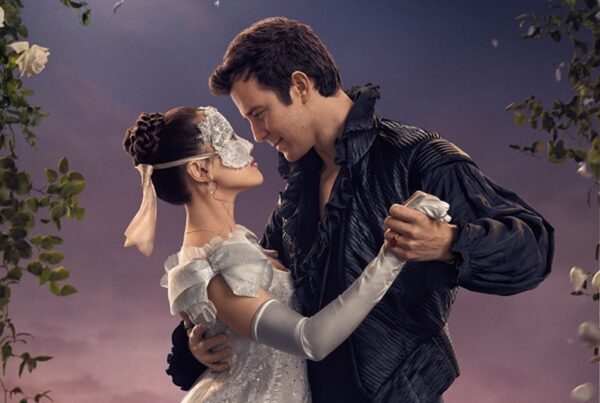If you’ve ever watched a rom-com and wondered why the wealthy fiancé is always suddenly boring, evil, or allergic to fun, congratulations, you’ve just met Hollywood’s favourite scam: the broke boy propaganda.
We’ve been sold a scam, and it comes wrapped in violins, rain-soaked kisses, and “you complete me” speeches. It’s called broke boy propaganda.
Hollywood loves it: the girl with options, wealth, or a rich fiancé is pushed hard towards the man with no money but an endless supply of “soul.” The rich one? He’s suddenly stiff, arrogant, or secretly awful.
The broke one? He’s painted as freedom itself. And because it’s cinema, we cheer when she trades security for struggle-love. By the time the credits roll, we’re all clapping for love that comes with unpaid rent and side hustles, and booing the idea of champagne and trips across the world.
It works because it’s consistent. You see the same formula again and again:
- Rich equals control. He’s stiff, polished, or power-hungry.
- Poor equals passion. He’s wild, spontaneous, “authentic.”
- The woman equals redemption. She proves she’s not shallow by choosing chaos over comfort.
And just like that, we’ve been trained to believe that stability is boring, ambition is unsexy, and the only “real” love is the kind that comes with financial uncertainty. Don’t believe me, let’s get into it:
Exhibit A: Titanic

In Titanic, Rose’s fiancé, Cal, is wealthy, powerful, and makes grand gestures. He buys her the biggest diamond you’ve ever seen, sets her up in luxury, and sails her across the Atlantic in first class. On paper, it should be enviable. But in the movie? All of that is flattened into boring. He’s stiff, prideful, and eventually abusive. No one is defending him — he was a god-awful man.
But here’s the trick: Jack isn’t just written as romantic, he’s written as the antidote to wealth. He had nothing. Jack couldn’t even afford a ticket; he gambled his way onto the ship. He has no future, no stability, no plan. And yet the film sells his poverty as liberation. Third-class parties look like the height of joy; cramped cabins feel intimate and authentic; a man who literally owns nothing becomes the symbol of freedom.
The punchline? We cheered as Rose chose him, and then, decades later, we watched her toss the priceless diamond into the ocean instead of giving her granddaughter generational wealth. The broke boy fantasy went with her to the grave.
Exhibit B: The Notebook

Lon, Allie’s fiancé, is the kind of man most people would call a blessing: wealthy, respectful, committed. The problem is, in The Notebook, he’s painted as flat. He’s dependable to the point of dullness, never unkind, just unexciting.
Noah, on the other hand, is chaos in human form. He’s broke, aimless, and obsessive. He yells at Allie, she screams back, they fight, they make up, they kiss in the rain. His lack of ambition, career, or stability is reframed as raw passion. The film tells us that is the “real” love, while the man with resources and consistency is dismissed as safe but lifeless.
What Hollywood does here is clever: it convinces us that being toxic and unstable is somehow more desirable than being grounded. Lon’s sin isn’t cruelty, it’s being “boring.” And in the language of romance movies, boring is the ultimate dealbreaker.
Exhibit C: Reality Bites

Winona Ryder’s Lelaina is caught between Michael (Ben Stiller), a successful, stable, professional man, and Troy (Ethan Hawke), her friend-slash-slacker musician in Reality Bites. Michael is dependable; he has a job, showers, a car that runs, and probably knows how to file his taxes. His crime? He’s “too corporate,” too tied to the system, too ambitious. The film frames him as bland, sterile, soulless.
Troy, meanwhile, is broke, moody, and emotionally unavailable. He floats from couch to couch, sings a few songs, and sneers at capitalism while contributing absolutely nothing. And yet he’s written as the passionate, authentic choice. The man who refuses to grow up or pay rent becomes the hero, while the man with a plan becomes the villain.
Reality Bites is basically the cinematic blueprint for struggle-love: teaching women that “the one who sees your soul” will never have money, stability, or soap, but he’s still the better choice.
Exhibit D: Notting Hill

If you thought Hollywood only did this with rich men, Notting Hill shows the scam runs both ways. Julia Roberts plays Anna, a global superstar with fame, money, and glamour. Hugh Grant plays William, the humble, bumbling bookshop owner who can barely afford his rent.
Anna’s world is framed as shallow: red carpets, journalists, and luxury hotels. William’s world, by contrast, is painted as authentic: cramped flats, spilled orange juice, and awkward dinners with quirky friends. Anna, despite her fortune, is “trapped.” William, despite his financial struggle, represents “real life.”
The movie’s message is clear: money and fame might look glamorous, but true happiness lies in the hands of the broke man with a dodgy haircut, a failing business, and an awkward roommate. Poverty is once again coded as purity, while wealth is coded as a bedazzled cage.
Exhibit E: Dirty Dancing

In Dirty Dancing, Baby comes from a wealthy family, vacationing at a high-end resort. Johnny, the dance instructor, is working-class, underpaid, and always one paycheck away from disaster. The class divide is stark, and the script makes sure we see it.
Her family’s world? Hypocritical, stiff, judgmental. Johnny’s world? Electric, sweaty, filled with rhythm and authenticity. Baby chooses him, of course, not just because of attraction, but because the movie codes his working-class struggle as more honest than her comfortable upbringing.
The rich world is lifeless, oppressive. The poor world is alive, sensual, and free. Once again, wealth is stripped of joy, while poverty is romanticised as the truest love of all. Look
Exhibit F: Sweet Home Alabama

Reese Witherspoon plays Melanie, engaged to Andrew, a wealthy, kind, ambitious New Yorker. He’s stable, successful, and here’s the kicker, he’s genuinely in love with her. The problem? The Sweet Home Alabama writes him as slightly uptight and out of touch.
And now Jake, her small-town, broke ex-husband. He has no money, no clear plan, and a messy past with her, and yes, he was overwhelmed by her success in New York. But he’s framed as “real,” the one who knows her best, the one with passion. New York’s wealth and stability suddenly look sterile. Small-town poverty suddenly looks authentic. And once again, the broke boy wins.
Exhibit G: Materialists (2024)

The most recent example Materialists was dragged all over social media. A woman is caught between a wealthy financier boyfriend and a struggling actor. And of course, the movie tilts our sympathies toward the actor. He has less, but he’s framed as soulful. The wealthy partner is painted as shallow, transactional, or seemingly unappealing because of … his height. Which is seemingly no longer a problem, considering he already got surgery to fix that.
The outcry wasn’t just about the love triangle; it was about how tired this trope feels in 2024. Women online pointed out how it perpetuates the same old idea: choosing stability makes you cold, while choosing passion makes you authentic. And yet, stability is precisely what many women are told to sacrifice, both on screen and in real life.
It’s not just about women being steered toward broke boys. The flip side is just as common: rich men who could have any wealthy, ambitious woman are instead scripted to choose the “poor, humble” one, and the wealthy rival is always turned into a villain. The message is clear on both ends: money, ambition, stability, wealth, these things can make you cold, greedy, or boring. Poverty, struggle, or “humility” make you lovable.
Why It Matters
On screen, it’s packaged as romance. Off-screen, it conditions us. Women who want financial stability get shamed as shallow. Men without direction get celebrated as soulful. Wealthy women are painted as unworthy. The propaganda teaches us to equate love with sacrifice, and to mistrust comfort as if happiness only counts if it comes with pain.
And so we keep clapping as diamonds sink to the bottom of the ocean, as mothers’ dream sons-in-law get discarded for chaos in the rain, as cramped apartments get framed as passion while penthouses are painted as prisons. It’s cinematic sleight of hand, a trick we’ve been applauding for decades.
But maybe the real love story isn’t rich versus poor at all. Maybe the scam is that we were ever told stability was boring in the first place.




